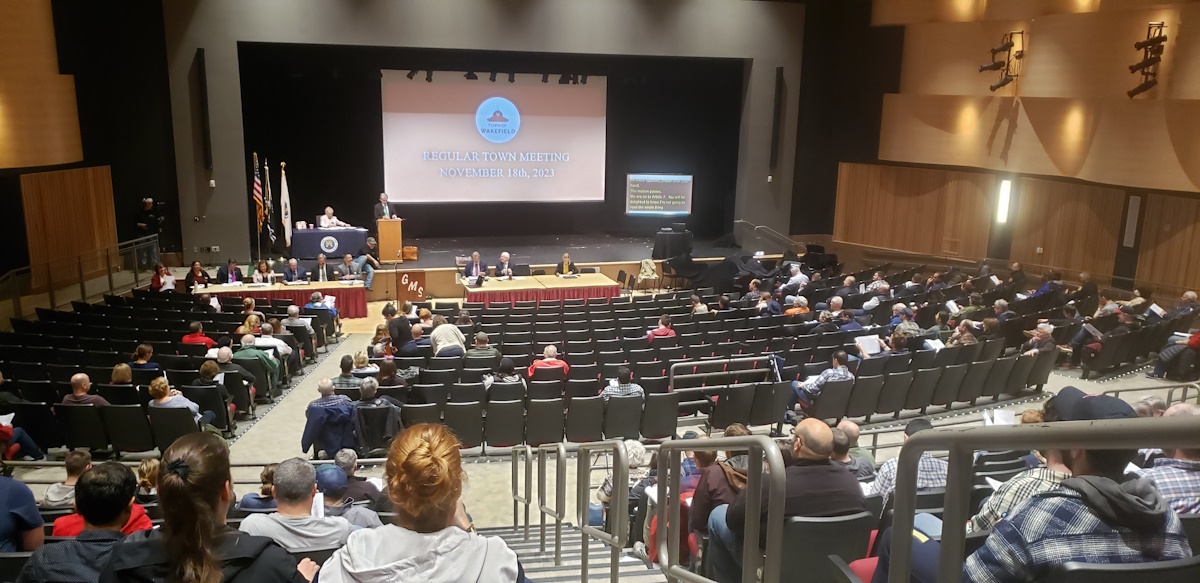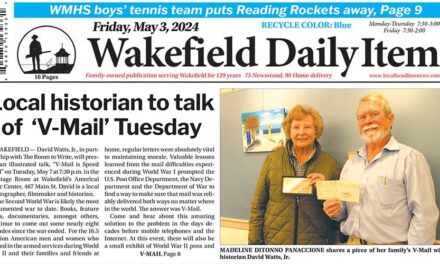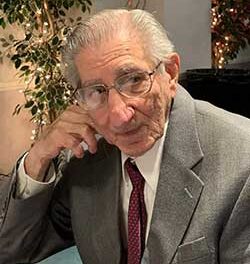By MARK SARDELLA
WAKEFIELD — An Open Meeting Law complaint has been filed against the town with respect to Monday’s scheduled Annual Town Meeting.
The complaint, filed by Scot McCauley of Walden Road, claims that the town “violated Open Meeting Laws as well as legal posting requirements for the Town Meeting Warrant scheduled for April 29.”
But Town Counsel Thomas Mullen notes that the Open Meeting Law does not apply to Town Meeting. He also maintains that, contrary to McCauley’s claims, the town has properly provided pertinent information and maps related to Town Meeting in an accessible manner, in accordance with applicable law.
McCauley’s complaint alleges that the warrant posted on the town’s web site does not include all subject matter, pointing specifically to the omission of maps, images and descriptions needed by voters to make an informed decision and to participate in discussions at Town Meeting.
McCauley also maintains that the Town Meeting violated the Americans with Disabilities Act, Title II, by not properly posting content in an accessible manner on the “Town’s Official Bulletin Board” or in the subsequent Wakefield Daily Item publications.
Specifically under Article 17 (the Planning Board-sponsored MBTA Multifamily Zoning proposal), McCauley claims that the Warrant does not meet the legal requirements by providing insufficient information to allow voters to make an informed decision at Town Meeting. The posted article, McCauley alleges, “has no written reference whatsoever as to where exactly this zone(s) is to be located in Wakefield. There are two MBTA train stops – North Avenue and Greenwood and neither is referenced in the Article. There is no written indication as to how large this zone(s) will be in Wakefield. There is no written indication as to how many properties or lots this zone(s) will encompass or affect in Wakefield. There is no written indication as to how many ‘by-Right’ multifamily units will be allowed in this MCCOD Zone(s) in Wakefield.”
The article, he points out, references a map, “a copy of which is on file with and available for inspection at the office of the Town Clerk.”
Without that map, McCauley maintains, “the voter has no indication as to the scope and complexity of the proposed overlay district(s) they are being asked to consider to participate in discussing at town meeting.”
McCauley cites nearly identical concerns with respect to Article 18, a citizens’ petition article that calls for minimum compliance with the state’s MBTA Multifamily Zoning mandate.
Regarding Article 16, a Citizens Petition for rezoning and adding a “Self-Storage overlay District” also does not denote, in the text of the article, exactly where the proposed zone is to be, McCauley contends.
“There is an embedded map which does list the Assessors Plot number and sufficient geographical references as to ascertain its location if you are someone who is not legally blind or otherwise sight impaired,” McCauley observes.
McCauley also cites problems with Article 19, related to establishing a marijuana overly district. He notes that a map referenced in the article is “on file with and available for inspection at the office of the Town Clerk.”
He maintains that the map should have been included in the Town Meeting warrant as published.
“To have to visit the Town Hall during regular business hours to view maps that should have been included in the Official Warrant Bulletin Board Posting online at www.wakefield.ma.us is unreasonable and preclusive to those who otherwise work similar hours to the Town Hall’s standard hours of operation,” McCauley states. “In today’s modern age, with digital technology as it is, there is no reason whatsoever why a map cannot be included in any type of publication whether it be the official Online Bulletin Board of the Town’s website or in the Wakefield Daily Item’s Publication.”
McCauley also contends that the town did not follow standard procedure for zoning change requests by failing to notify potentially affected residents by mail.
McCauley further details his contention that the town did not provide information in a format, as required under the Americans with Disabilities Act, to enable voters with certain disabilities to access the information needed to participate at Town Meeting. That information, he adds, must be posted in an accessible format on the town’s “Official Bulletin Board,” listed as www.wakefield.ma.us.
In conclusion, McCauley writes, “I respectfully ask that all my complaints be addressed and remedied before any Town Meeting can be called on any of the above matters.”
Town Counsel Thomas Mullen disputes McCauley’s claims.
“The Open Meeting Law does not apply to Town Meeting,” Mullen said, citing the definition of a “meeting” under Massachusetts General Laws, Chapter 30A Section 18. “That’s why we can exclude people from Town Meeting who aren’t registered voters in Wakefield; we couldn’t do that at, say, a Town Council meeting where the whole of the public has a right to attend.
“To the extent that the complaint concerns our incorporation of maps by reference rather than re-printing them in full, the complaint also fails,” Mullen said. “The Attorney General has no problem with such incorporation, provided that the referenced materials are available at the Town Clerk’s office, as they are in this case. In fact, we could have treated the whole text of the bylaw amendments in the same way and deprived the Item of a lot of revenue. We consciously chose to err on the side of clarity at the expense of increasing the publishing costs.
“As for whether a vision-impaired person has effective access to the warrant under the Americans With Disabilities Act, Town Engineer William Renault is the Town’s ADA Coordinator, and he is quick to respond to any accommodation request,” Mullen said. “He has not been contacted by anyone to provide materials in an alternative format, but he stands ready to do so.”





